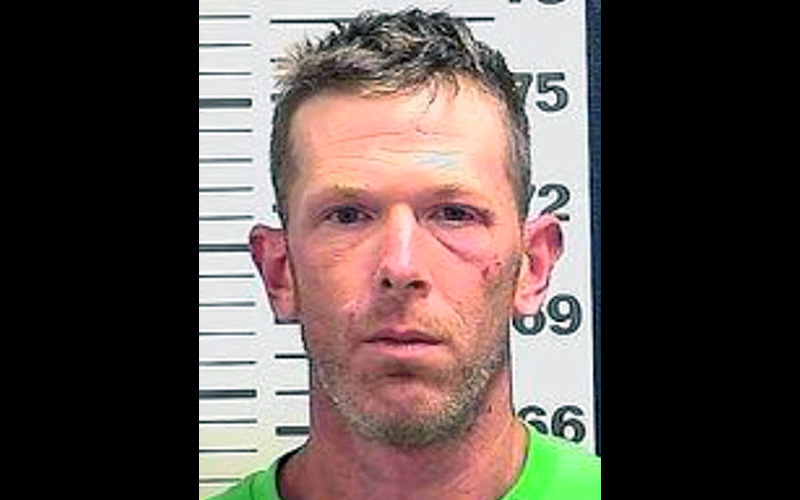Teton County, Idaho, to seek death penalty in double murder
Published at | Updated at
DRIGGS — The Teton County, Idaho, Prosecutor’s office confirmed that it will be seeking the death penalty for Erik Ohlson, 39, of Jackson, Wyoming.
Ohlson will be arraigned in an Idaho District Court on Sept. 6 with two charges of first degree murder.
Ohlson faces one murder charge for the shooting death of Jennifer Nalley, 39, of Driggs. The second count stems from the death of Nalley’s unborn child.
Ohlson was arrested for a DUI after crashing his vehicle into a utility pole. While he was in custody, he told investigators he shot Nalley after coming to her home in Driggs. He said he was in a relationship with Nalley and was aware that she was pregnant.
There, he will have the opportunity to plead guilty or not guilty.
County Prosecutor Kathy Spitzer confirmed that prosecutors would declare their intent to seek the death penalty before then.
Cases involving the death penalty can become very expensive.
“The cost of a capital case can vary widely depending on the specifics of the case and the speed at which the prosecution and defense come to a settlement,” said Idaho Association of Counties Associate General Counsel Dan Blocksom. “The range can be anywhere from about $10,000 to $500,000…”
By seeking the death penalty, the county is triggering the Capital Crimes Defense Fund, CCDF, which is designed to “ease the burden of the cost of trials for death penalty cases.”
The fund, which counties pay into on a per capita basis, is governed by the Idaho Association of Counties, IAC.
“Counties don’t have to pay into the fund, but if they don’t, then the State Appellate Public Defender will not handle the defense for their appeals,” said Blocksom.
The CCDF works kind of like an insurance policy, with a deductible of $10,000 and an annual “premium” based on county population.
According to Blocksom, Teton County’s dues amount from 2007 to 2016 has been $3,095 per year.
Once the county pays the deductible, “the CCDF will pay the costs for the second attorney (required for death penalty cases) and all other related trial costs including but not limited to preparation, investigation, forensics, mitigation, etc.”
These requirements can get very expensive.
“Even if the capital defense kicks in, some counties can almost go broke over prosecuting something like this,” said Blocksom.
This is in part because the CCDF pays for only one of the defendant’s attorneys and does not pay any of the prosecution’s bills.
“IAC has been primarily concerned about ensuring the 6th Amendment right to counsel for indigent defendants, and thus has been urging the Idaho Legislature to provide state funding to the counties to protect this right,” said Blocksom. “Prosecution, on the other hand, is not a constitutional issue in the same way that public defense is, so IAC’s handling of this issue is only indirectly through its assistance of the CCDF board’s discussions.”

Just the reimbursable parts of a capital case can reach the hundreds of thousands.
The CCDF paid more than $400,000 in claims to Latah County’s defense of Dale Shackelford, who killed his ex-wife and her boyfriend and then set fire to the building where their bodies were found.
Shoshone County Clerk Peggy White is dealing with the payments for one such capital case, where a 26-year-old woman was charged with murdering a 22-month-old child. The case is still ongoing, but no longer involves the death penalty.
For White, paying for the case has proven a challenge.
“It’s devastating to have a murder case,” said White. “So far, I’ve got a ton of bills. Approximately $168,000 thus far… It’s a big deal to us.”
Shoshone County, which is 76 percent public land and has a population of about 12,600, had to pay for trial costs upfront by forming a trust account, which the Defense Fund reimburses.
To be reimbursed, the expenses have to first be approved by the CCDF board, made up of representative county commissioners from each state district.
Furthermore, according to the CCDF’s guidelines, “if a case is converted from a capital case to a non-capital case prior to trial, the CCDF shall pay only those amounts incurred prior to conversion to a non-capital case.”
Prosecutors can remove the intent to have capital punishment at any time.
Ohlson’s defense has not returned a request for comment.
This story was originally published in the Teton Valley News. It is used here with permission.



